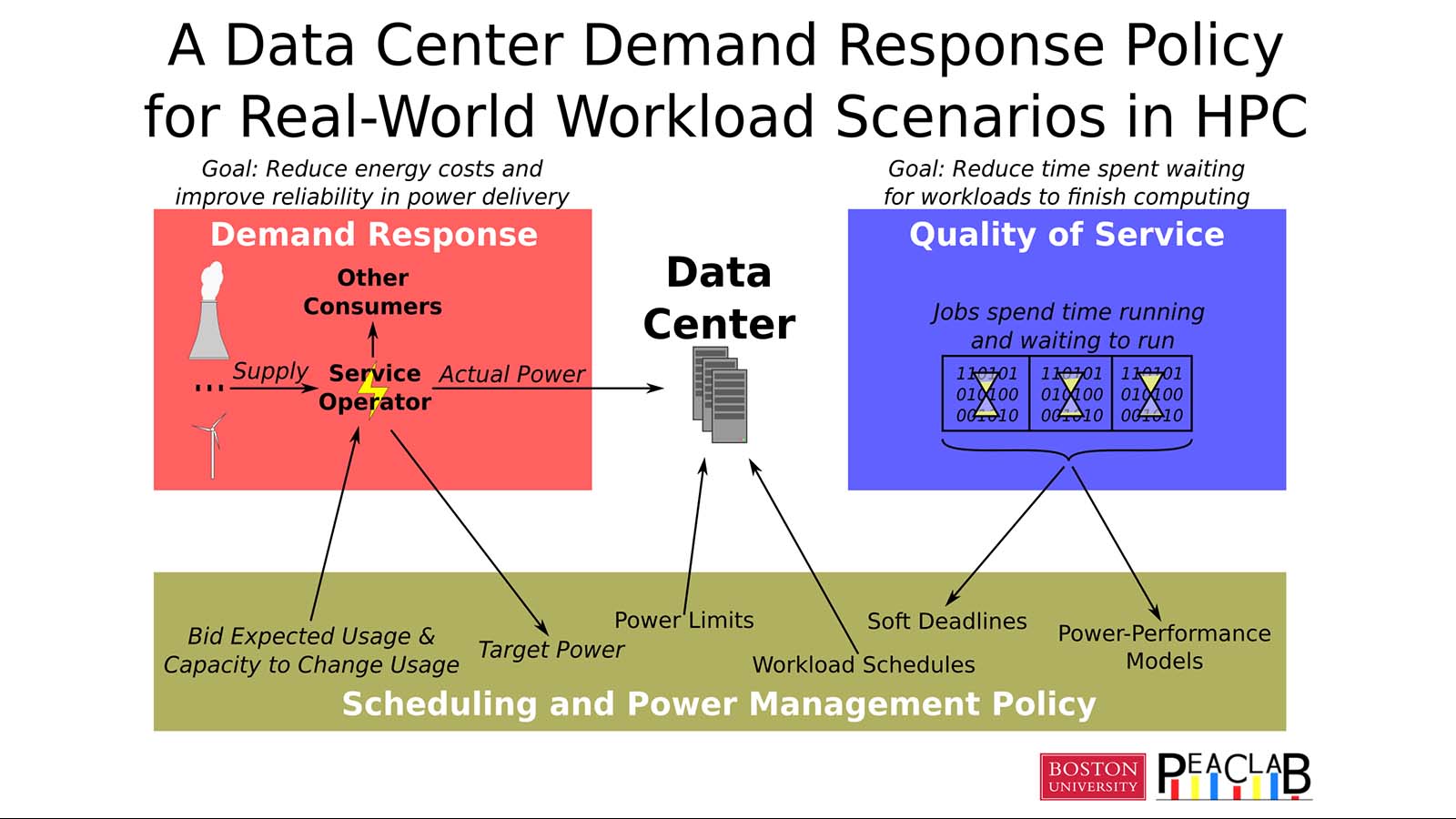Demand response programs offer an opportunity for large power consumers to save on electricity costs by modulating consumption in response to demand changes in the electricity grid. Among such programs, regulation service requires consumers to modulate power following a dynamic signal. In this talk, we present power management policies that enable HPC systems to participate in regulation service under real-world constraints. The policies regulate HPC power through workload scheduling and CPU power limiting. We evaluate our policies through simulations and real experiments on MGHPCC servers. Results show that HPC systems can save electricity costs by 10-50% while abiding by QoS constraints.
